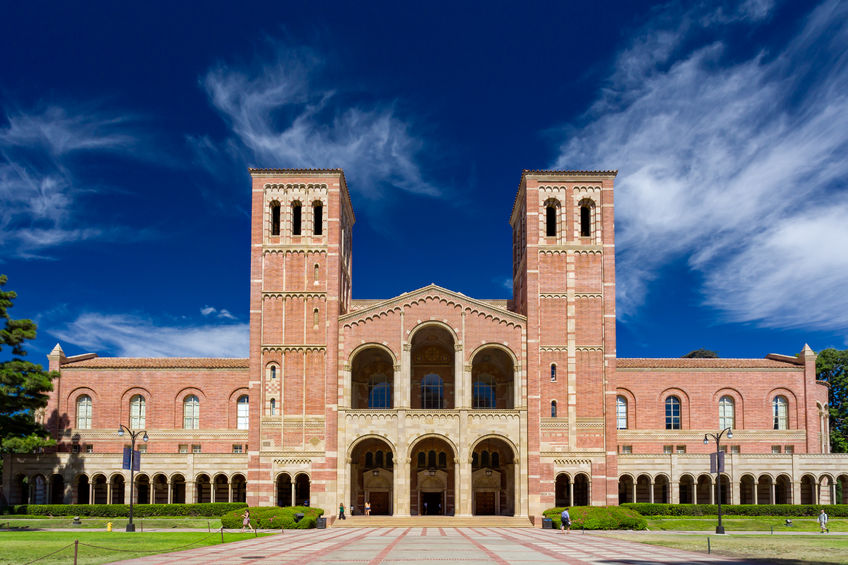You’ve seen them, right? Those list of “homeschool-friendly” colleges that float around the Internet, popping up on various social media sites and web pages?
If your kids are still young, or if you’re new to homeschooling and trying to just keep your head above water, you may not have paid much attention to them. But those of us who are homeschooling older kids sure have.
As the mom of two teenage boys—one of whom will begin applying to colleges later this year—I confess that I have downloaded and saved several of these lists, hoping they could help me when the time came to begin creating my sons’ college lists. Now that that time is here, though, and I’ve begun looking at them more closely, I have a question:
Where in the world did these lists come from?
I don’t mean, “Who provided them?” I mean, “How were they created?” How did any of these colleges end up on these lists?
There are some vague descriptions that these schools have admitted homeschoolers in the past, but very few details are given about when, and how many, and how hard was the admission process for them. Honestly, without any of this information, how useful can these lists possibly be?
And here’s my other question:
Are there other schools not on these lists that welcome homeschoolers, and that have programs that might be particularly well suited for our uniquely creative, self-directed students?
I’m sure there must be. With over 2,600 accredited four-year colleges and universities in the United States, how can the limited number on the “homeschool-friendly” lists be the only places that will welcome our students and provide a higher education experience where they can thrive and grow?
Reason dictates that most (although not yet all) schools should probably be considered as viable options for our students, especially now that homeschooling is becoming more mainstream and so many homeschoolers have successfully gone on to pursue their higher education at so many different schools. So, do we even need a list anymore?
Yes, I think we do, although with a slightly different focus.
The Case for an Updated List
When the homeschooling community was still small and on the fringes, finding schools that were willing to accept non-traditional students was more challenging. However, now that our community has grown to well over two million, and our students are widely recognized for being highly-motivated and academically successful, the barriers have been significantly lowered, if not removed altogether.
In short, our students are the ones who can now be more selective, released from the limits of a small pool of “friendly” schools.
So, if our students can consider the full array of schools, how do they go about selecting those that are the best fit given their non-traditional academic experiences and personal goals? As my son and I work together to create his college list, here are the three important criteria we are looking for:
- Academically challenging
- Opportunities for experiential learning (research, internships, integrated projects)
- Flexible options for customization and personalization (designing your own major, independent study, unique programs)
As I have connected with other homeschoolers who are thinking about college, these seem to be the common factors that come up again and again for them, too. Preferences in size or location of the school, majors/extracurriculars offered, and cost vary based on the family situation and the student’s personality and interests. But homeschoolers especially value schools that prioritize our children’s continued intellectual growth, with an emphasis on opportunities for them to apply their knowledge and skills to something real, and the freedom to direct their own education.
These latter two factors are generally not features that traditional students screen for when researching colleges, and they tend not to appear on most college-search tools.
So where can we find schools that fit these criteria?
A Revised List of Homeschool-Friendly Colleges
I decided to research and create a new list of “homeschool-friendly colleges” that I could share with other homeschoolers based on these priorities. Here’s how I did it.
This new list combines schools I am personally familiar with (through research for my recent book), along with schools from two homeschool-oriented lists created by other organizations. These other two lists each recommend fifty schools (some of which appear on both lists), and their methodology was similar, including the selection of schools that provide:
- “Options for moving through school at an accelerated pace”
- “A high degree of customization/personalization”
- “Unique programs that cater to significant talents and hobbies”
- “Alternative course structures”
I explored the websites of each of the listed schools, scanning for evidence of the factors mentioned above and investigating their “Admissions” pages for specific information about homeschool admission policies.
Those that clearly spelled out their admission requirements for homeschooled applicants and provided specific information about flexible and customizable programs made the cut and are included on the first version of a new list of over sixty schools (with more being added regularly). I also indicated the source(s) for each school recommendation, along with a link to the relevant admission information for homeschoolers on each school’s web site. Voila! New and improved list with clear sources and criteria that can be added to as more qualifying schools emerge.
Wrapping Up
Homeschooling has grown and evolved significantly since its early days. So, as we ask those outside of our community to update their view of homeschooling, to take a closer look at our students and their academic accomplishments and abilities, it’s also important for us to reassess and update our current thinking about our students, too.
Rather than continuing to view the college admissions process through a lens of obstacles and limitations, it’s time for us to shift to a more opportunity-oriented perspective, supported by the expectation that our students will have access to many friendly schools that will welcome and support them through their college years.








I am perplexed by this list. I would not call a school that requires you to pass a GED homeschool friendly. I would call that insulting.
Hi, Carmen! I understand where you’re coming from, and as a homeschooling mom of two, I agree that requiring a GED seems unnecessary. Many homeschooling families choose this route, however, and don’t see this requirement as a problem. And even schools that ask for it often welcome non-traditional students in many other ways, so may be a good fit for some. Over time, though, I hope this and some of the other hurdles placed in front of homeschoolers can go away.
PS This list is one that will be updated regularly, so if you have recommendations on schools that should be added or deleted (and why), please let me know! info@uncommonapplicant.com